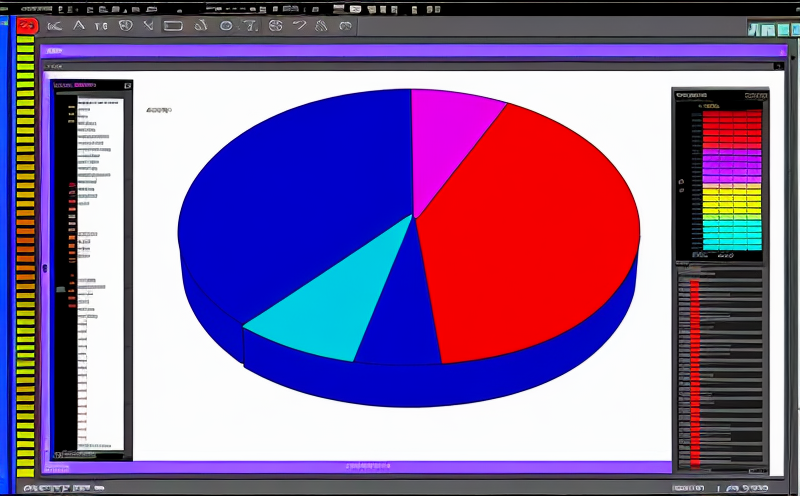JIS K7125 Vicat Softening Temperature Testing
The JIS K7125 Vicat softening temperature testing is a critical method used in material science and engineering to determine the thermal stability of plastics. This test measures the temperature at which a plastic sample begins to soften under constant load, indicating its resistance to heat stress. The Vicat softening point is an important parameter that helps quality managers, compliance officers, R&D engineers, and procurement specialists ensure product performance under various environmental conditions.
The JIS K7125 standard specifies the procedure for determining the Vicat softening temperature of thermoplastics using a cone-shaped indenter. This method provides insights into how materials behave under heat stress, which is crucial for predicting their service life in applications where thermal stability is essential. For instance, this test is often used to evaluate polymers that are exposed to high temperatures during manufacturing or end-use conditions.
Preparation of the sample is a critical step before conducting the Vicat softening temperature test. The specimen should be cut into standard shapes such as discs, blocks, or strips with specific dimensions and thicknesses according to JIS K7125 requirements. The specimens are then conditioned at room temperature for 48 hours to ensure they reach equilibrium moisture content.
The testing apparatus typically consists of a Vicat softening temperature tester which includes a furnace chamber, a support frame with a heating element, and a cone-shaped indenter made of platinum or other suitable material. The specimen is placed on the support frame, and the furnace chamber is heated at a controlled rate. The temperature is increased gradually while the indenter applies a constant load to the sample.
The test begins by recording the initial temperature of the sample and then heating it at a specified rate until the first softening point is reached. This occurs when the specimen shows signs of deformation, such as a 1 mm diameter indentation in the center of the sample. The temperature at which this happens is recorded as the Vicat softening temperature.
Understanding the Vicat softening temperature can help in selecting appropriate materials for applications where thermal stability is crucial. For example, in the manufacturing of automotive components or electronic devices, ensuring that the materials used do not soften under operating temperatures is critical to prevent failures and ensure product longevity.
The Vicat softening point test is also useful for quality control purposes. By comparing the results of this test with industry standards and previous data, manufacturers can identify variations in material properties due to changes in manufacturing processes or raw materials. This allows them to make necessary adjustments to maintain consistent product quality.
- Enhanced Material Selection: Helps in selecting the right plastic for specific applications by assessing thermal stability.
- Quality Assurance: Ensures that products meet the required thermal performance standards and specifications.
The JIS K7125 Vicat softening temperature test is widely used across various industries, including automotive, electronics, construction, and medical devices. Its importance lies in its ability to provide valuable insights into how materials behave under heat stress, thereby facilitating informed decisions about material selection and quality assurance.
Scope and Methodology
The scope of JIS K7125 Vicat softening temperature testing is defined by the Japanese Industrial Standards Committee. This test applies to thermoplastics that are expected to undergo heat stress during their lifecycle or in specific applications. The methodology involves preparing standard specimens, conditioning them under controlled conditions, and then subjecting them to a series of temperature increases while applying a constant load.
The apparatus used for this testing includes a furnace chamber with precise temperature control, a support frame that holds the specimen, and a cone-shaped indenter made from platinum or similar material. The testing procedure involves heating the sample at a controlled rate until it shows signs of softening under the applied load. Specifically, the test aims to determine the temperature at which the sample begins to deform by 1 mm in diameter.
The specimens are prepared according to JIS K7125 specifications, ensuring that they meet the required dimensions and tolerances for accurate testing. The conditioning process involves keeping the samples at room temperature for a minimum of 48 hours to allow them to reach equilibrium moisture content. This step is crucial as it ensures that any initial variations in properties due to humidity are minimized.
The testing procedure follows a systematic approach, starting with the measurement and recording of the initial sample temperature. The furnace chamber is then heated at a specific rate, typically around 10°C per minute, while applying a constant load using the cone-shaped indenter. The temperature increase continues until the first sign of softening is observed.
The use of JIS K7125 Vicat softening temperature testing ensures that materials are evaluated consistently and objectively across different laboratories. This standardization helps in achieving reliable results, which can be compared against industry benchmarks to ensure compliance with quality standards.
Benefits
- Material Selection: Enables informed decisions about the choice of plastics suitable for specific applications, ensuring they can withstand heat without deforming.
- Quality Assurance: Provides reliable data that helps manufacturers meet strict quality standards and improve product performance.
Industry Applications
- Automotive sector: Ensuring durability of components under high-temperature conditions.
- Electronics industry: Designing heat-resistant circuits and enclosures.
- Construction field: Selecting appropriate materials for outdoor applications where exposure to sunlight increases temperature.





